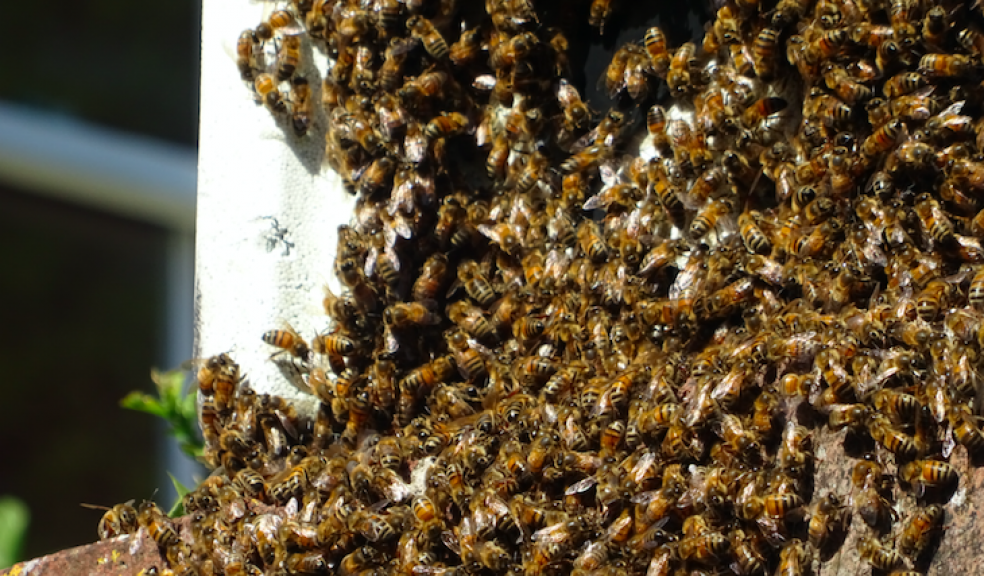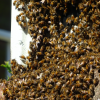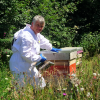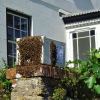
The Donkey Sanctuary’s latest rescue gets staff buzzing
A colony of honey bees that took up residence at The Donkey Sanctuary’s headquarters have been saved thanks to a quick thinking member of staff.
Jenifer Tucker, website manager at The Donkey Sanctuary who is also a beekeeper heard that the bees had chosen Slade House, the charity’s main offices, as their new home and knew that as a working environment, they would not be able to stay there.
As the bees had chosen the roof space in Slade House, it would have been virtually impossible to remove them without the intervention of a pest controller. At this time of year, honey bees are likely to swarm as their colony sizes grow and the next generation needs room to expand.
Jenifer says: “I couldn't just leave them to their fate so had to try to do something. I put up a bait hive and within minutes there were a small number of bees taking an interest, so there was a glimmer of hope.“
As the day progressed it was clear they preferred Jenifer’s bait hive to Slade House. By mid-afternoon the swarm left the roof space en-masse to the temporary hive.
The Donkey Sanctuary has a programme of long-term projects led by its conservation team on its land to improve animal habitats and attract wildlife. These include the recent completion of a bat loft through to monitoring the numbers of dormice at Paccombe Woods near Harcombe. The sanctuary also keeps its own colony of honey bees which are looked after by Jenifer.
Jenifer continues: “I didn’t know at first whether my plan would work, but it was amazing to watch them leave the building and head to the bait hive. At no time was anyone in any danger as honey bees in swarming mode are actually very calm and placid, although as a responsible beekeeper I still put on my beesuit when collecting swarms.”
The colony was later transferred to a larger hive and once settled were moved away from the sanctuary.
Jenifer concludes: “If you have a patch of garden to leave to grow a little wilder, you may find this creates a wonderful haven for birds, bees and other insects.”



















